 8 citations,
October 2020 in “Pharmaceutics”
8 citations,
October 2020 in “Pharmaceutics” Dutasteride-loaded nanoparticles coated with Lauric Acid-Chitosan show promise for treating hair loss due to their controlled release, low toxicity, and potential to stimulate hair growth.
 August 2008 in “European Neuropsychopharmacology”
August 2008 in “European Neuropsychopharmacology” Some teenagers with anorexia nervosa have worse cognitive abilities, especially in visual and spatial tasks, and this is more common in those with a lower body weight.
 14 citations,
January 2008 in “Gene therapy”
14 citations,
January 2008 in “Gene therapy” Gene therapy shows promise for enhancing physical traits but faces ethical, safety, and regulatory challenges.

New insights into cell communication in psoriasis suggest innovative drug treatments.
 2 citations,
July 2020 in “Behavioural Brain Research”
2 citations,
July 2020 in “Behavioural Brain Research” Changing neuroactive steroids in baby male rats affects their memory and learning differently as they grow up.
 17 citations,
January 2007 in “Popular Communication”
17 citations,
January 2007 in “Popular Communication” Makeover TV shows promote unrealistic beauty standards and suggest women's worth is based on looks.
 5 citations,
April 2007 in “Popular Communication”
5 citations,
April 2007 in “Popular Communication” Makeover TV shows promote unrealistic beauty standards and pressure women to conform to societal ideals.
 1 citations,
February 2021 in “International Journal of Research in Dermatology”
1 citations,
February 2021 in “International Journal of Research in Dermatology” Premature graying of hair significantly harms psychological and social wellbeing.
 41 citations,
June 2018 in “Medicine Health Care and Philosophy”
41 citations,
June 2018 in “Medicine Health Care and Philosophy” The article suggests using four questions to tell apart necessary medicalization from excessive medicalization, focusing on problem significance, social expectations, medical understanding, and effective resolution.
20 citations,
March 2017 in “Arthritis research & therapy” Social media can help compare the effectiveness and safety of new arthritis medications.
 1 citations,
July 2022 in “Frontiers in Microbiology”
1 citations,
July 2022 in “Frontiers in Microbiology” MSM supplementation in kittens improves hair quality and growth rate without harming their health.
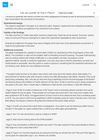
Reviewers criticized the study for assuming drugs with similar side-effects work the same way and questioned the validity of its findings due to potential biases and data quality issues.
The new minoxidil gel reduces runoff and improves eyebrow hair growth.
 8 citations,
March 2019 in “Progress in Human Geography”
8 citations,
March 2019 in “Progress in Human Geography” Hair significantly shapes body identity and social interactions, influencing how we perceive and relate to our bodies.
12 citations,
July 2017 in “Annals of saudi medicine/Annals of Saudi medicine” More knowledge about the risks of performance-enhancing agents leads to less use in north-western Saudi Arabia.
 July 2023 in “The Journal of Clinical Endocrinology and Metabolism”
July 2023 in “The Journal of Clinical Endocrinology and Metabolism” Gender-affirming hormone therapy improves physical performance in trans men to the level of cisgender men, while in trans women, it increases fat mass and decreases muscle mass, with no advantage in physical performance after 2 years.

Hair loss can cause significant social and emotional issues, especially for women and young men.
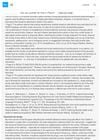
Reviewers suggested the study on finding new drug uses through social media side-effects needs better methods and clearer limitations.
 January 2010 in “Springer eBooks”
January 2010 in “Springer eBooks” Hirsutism can lower a woman's quality of life, causing emotional distress and affecting social and work opportunities.
 1 citations,
December 2022 in “BMC Public Health”
1 citations,
December 2022 in “BMC Public Health” Long-term effects of COVID-19 can vary over time and are more likely in certain age and gender groups, while race, income, and education levels have little to no impact. Ongoing medical care is needed due to potential complications.
 February 2024 in “ACS Omega”
February 2024 in “ACS Omega” The Shen Bai Hair Growing Decoction may help treat hair loss by promoting hair growth and reducing inflammation.

The peer review highlighted the need for clearer data handling, questioned the study's validity, and recognized improvements from the original version.
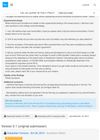
The study improved and was accepted despite initial concerns about data clarity, methodology, and potential overfitting.

Reviewers criticized the study's methods and suggested focusing on drug mechanisms instead of repositioning due to social media data quality concerns.
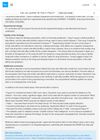
Reviewers criticized the study for its assumptions, social media data collection issues, and lack of comparison to existing methods.
 1 citations,
June 2023 in “Curēus”
1 citations,
June 2023 in “Curēus” PCOS affects nearly 25% of female medical and dental students, impacting their academic and social lives.
 March 2024 in “World Journal Of Advanced Research and Reviews”
March 2024 in “World Journal Of Advanced Research and Reviews” Educators who survived COVID-19 faced physical, psychological, and social challenges but overcame them with resilience and support, highlighting the need for schools to provide better health and psychological care.
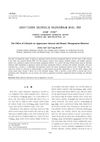 December 2023 in “Journal of the Korean Society of Cosmetology”
December 2023 in “Journal of the Korean Society of Cosmetology” People interested in aesthetics, personality, and social life care more about their appearance and beauty routines.
 January 2017 in “Acta dermato-venereologica”
January 2017 in “Acta dermato-venereologica” The congress showed that psychological therapy can help skin condition patients, social media affects acne stigma, education improves atopic dermatitis, and patient satisfaction in dermatology is high, especially with good doctor engagement.
 16 citations,
November 2015 in “International Journal of Dermatology”
16 citations,
November 2015 in “International Journal of Dermatology” Alopecia greatly lowers the quality of life for South African Black women, especially affecting their self-image and social interactions.


























